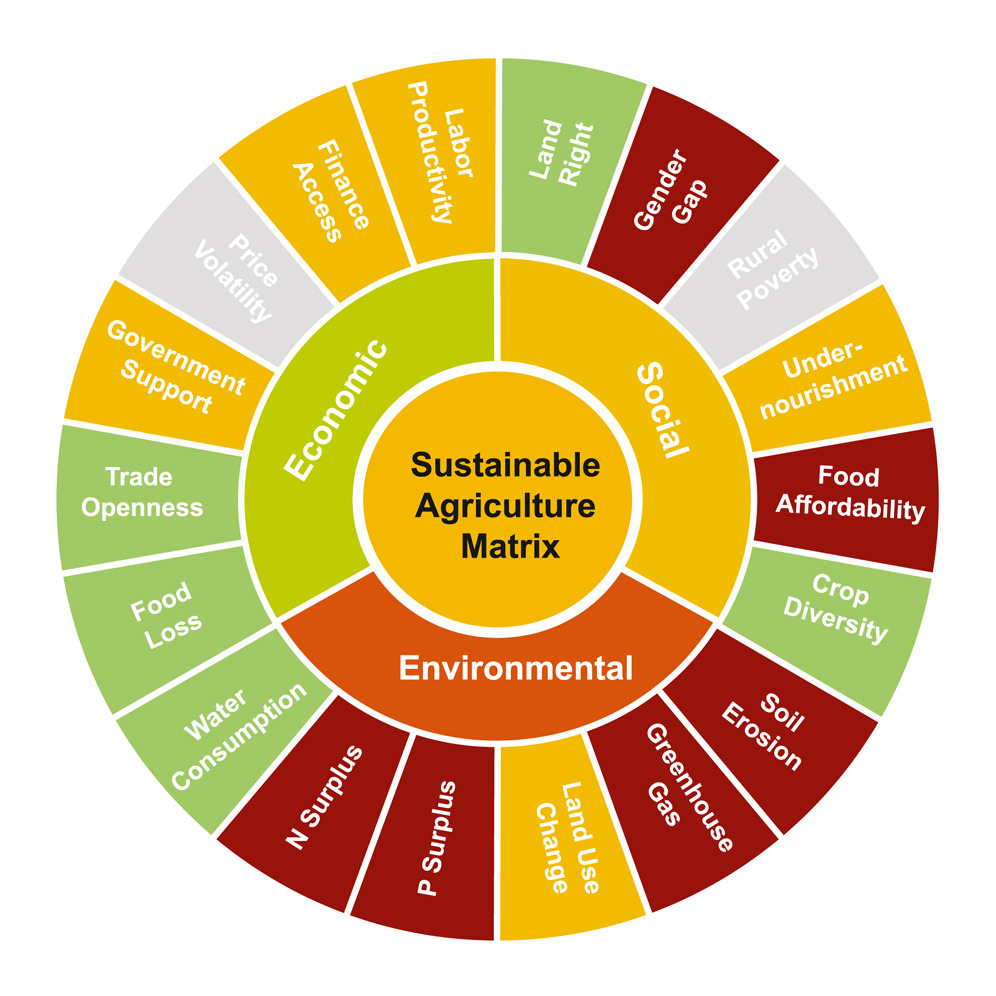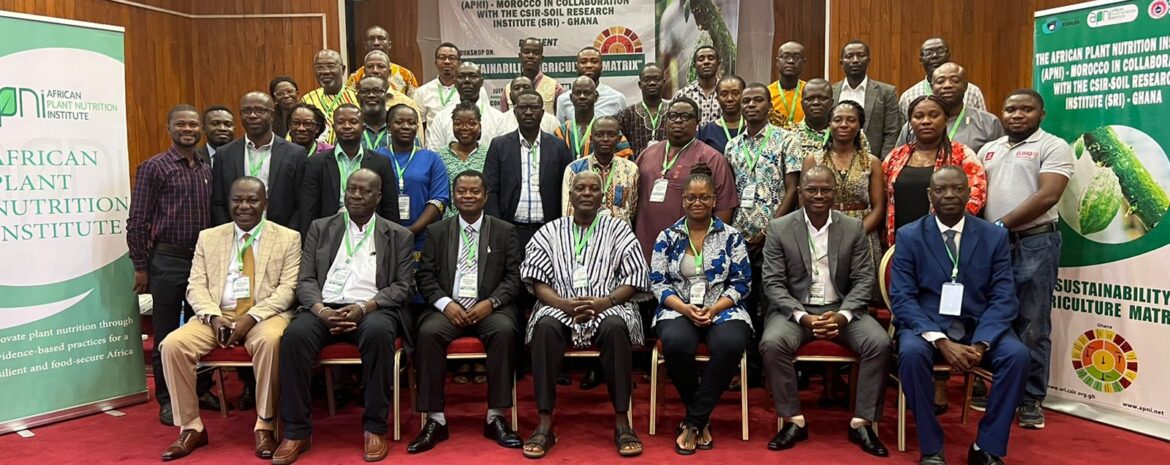National Workshop on Sustainable Agriculture Matrix for Ghanian Cacao Systems
The African Plant Nutrition Institute, in collaboration with the CSIR Soil Research Institute (SRI), held a one-day multi-stakeholders workshop on adapting the Sustainable Agriculture Matrix (SAM) framework for cacao cropping systems in Ghana
Kumesi, Ghana, July 27,2022 – As part of the Belmond Forum funded Sustainable Agriculture Matrix (SAM) Consortium led by the University of Maryland, Center for Environmental Science, the African Plant Nutrition Institute (APNI) in collaboration with the CSIR Soil Research Institute (SRI) organized a workshop in Kumesi, to engage key stakeholders and partners in order to develop a narrative for sustainability of cacao-based food systems in Ghana.
The Sustainable Agriculture Matrix (SAM) is a framework recently developed by the Center for Environmental Science, University of Maryland, USA, to measure agriculture sustainability and contribute to accountable and transparent monitoring of the SDGs. The SAM framework has 18 measurable indicators, based on three pillars of sustainability: economic, environmental, and social. SAM aims to serve as a platform to engage conversations among stakeholders involved in agriculture and to forge positive changes towards sustainability while avoiding unintended consequences.
To evaluate and further develop the SAM framework across socio-economic and environmental contexts, a group of multi-disciplinary teams across six world regions came together to form the SAM Consortium. APNI is part of the SAM Consortium and is supporting the evaluation of the SAM framework in Kenya, Ghana and Morocco.
In partnership with the CSIR Soil Research Institute (SRI), APNI is working to engage key stakeholders to identify critical sustainability indicators that are relevant for cacao cropping systems in the Ghanian context, and to suggest those that are missing from the current SAM framework.
The workshop gathered 36 participants from both public and private sectors at Policy, Research, and Extensions levels. The Ghanian R&D community identified the highest priority SAM indicators from a personal perspective, assessed the long-term trends observed using the initial results of SAM framework for Ghana. They provided explanation of the utility and state of the SAM indicators and their state and performance in measuring agricultural sustainability of cocoa cropping systems in Ghana. They also identified some relevant indicators for Ghanian cocoa cropping systems that are missing in the current SAM framework and analyzed the tradeoffs and synergies among the indicators.
 Today’s SAM Workshop engages conversations among the key stakeholders involved in Ghanian agriculture and forges positive changes towards sustainability while avoiding unintended consequences in cocoa food systems.
Today’s SAM Workshop engages conversations among the key stakeholders involved in Ghanian agriculture and forges positive changes towards sustainability while avoiding unintended consequences in cocoa food systems.
###
APNI Contributors: Dr. Kokou Adambounou Amouzou, Program Coordinator & Yousra Moujtahid, Communications Specialist


National Workshop on Sustainable Agriculture Matrix for Moroccan Olive Systems – African Plant Nutrition Institute (APNI) September 23, 2022 at 7:44 am
[…] workshop is a follow-up to the workshops held previously in Ghana for Cacao Systems and in Kenya for Maize […]
Nationales Symposium für nachhaltige Landwirtschaft - rmmandb September 23, 2022 at 11:25 pm
[…] Seminar war zuvor Ghana der Kakaosysteme und in Kenia […]